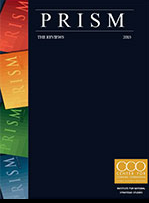Fort McNair –

Glenn Cross’s Dirty War: Rhodesia and Chemical Biological Warfare 1975–1980 is a welcome addition to the small, but growing scholarly literature on the history of chemical and biological warfare. In 1965, the minority white community in the British territory of Rhodesia (officially Southern Rhodesia) rejected demands that it transfer political power to the majority black population. By the mid-1970s, white Rhodesians found it increasingly difficult to counter the growing power of native African nationalists fighting the government. As with many insurgencies, the guerrillas lacked the resources to defeat government security forces in direct combat, but Rhodesian forces were stretched too thin to suppress the insurgents, especially once they had established base camps in neighboring countries. Amidst the conflict, Rhodesian military and intelligence services employed what would now be considered chemical and biological agents against the guerillas with unknown results.
The Rhodesians adopted a decidedly low technology approach to waging chemical warfare. They made no attempt to acquire or produce any of the agents—e.g. VX, sarin, mustard gas, or phosgene—commonly associated with military chemical warfare programs. Instead, they employed commercially available poisons, primarily parathion (an insecticide) and thallium (used to kill rodents). Rhodesian intelligence officials, relying on the technical support of a small team based at the University of Rhodesia’s medical school, used the infamous Selous Scouts to disseminate material. Another technique was to contaminate clothing with parathion infiltrated through nefarious channels to guerrillas. Contact with the poison treated clothing would kill or incapacitate the wearer.
The Rhodesians also killed a considerable number of guerillas through poisoned water sources and food, although exactly how many are unknowable. Cross seems most comfortable with an estimate of 1,500–2,500 people. This figure does not account for an unknown number of civilians who came into contact with the poisoned material, evidenced by the dramatic rise in poisoning cases reported by Rhodesian medical authorities. READ MORE>>>